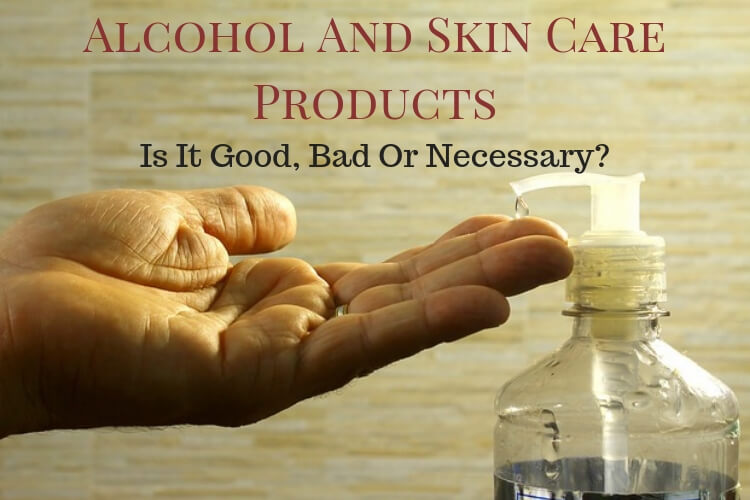
Alcohol and Skin Care Products – Is it Good, Bad or Necessary
Up until very recently, I was of the belief that alcohol and skin care products were a bad mix and that all alcohol should be avoided at all costs when it comes to skin care. I had thought that most if not all of my products were alcohol-free but upon inspecting my entire skincare collection, I discovered that a large portion of my collection contained some form of alcohol and so I decided I needed to look into it further before disposing of every product I owned.
I found that this was not as clear-cut as I had first thought and there were a few things that needed to be taken into consideration like the type of alcohol that was being used and how much was present in the product. There are actually two main types of alcohol used in skin care products, simple alcohols which are considered by many as bad and fatty alcohols which many consider as good.
Luckily for me, all my products contained the good kind. Phew, that would have been an expensive overhaul, but it’s still not as simple as just that. You may also be wondering if alcohol has such a bad name, why do skin care companies continue to add it to many of their products?
Why is Alcohol Used in Skin Care
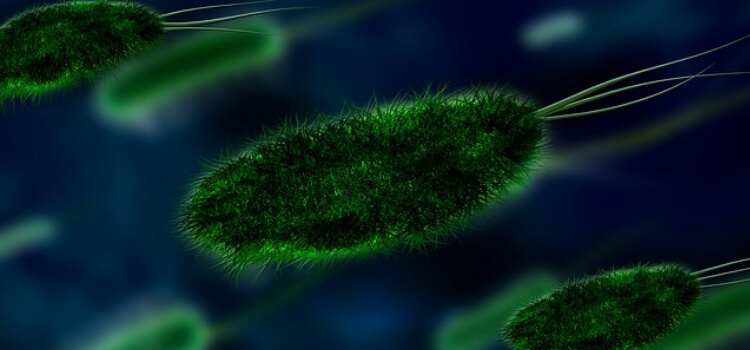
Considering that many people feel that alcohol is a bad addition to skincare products and in turn try to avoid it like the plague, it’s sometimes hard to understand why it’s so commonly used. Well, there are actually numerous reasons why alcohol is used in skin care products and below is a list of some of the main ones;
-
- It can help ingredients penetrate deeper into the skin
- It is used as a preservative to preserve the other ingredients by killing bacteria and germs
- It is used as a solvent to break down and mix ingredients that are otherwise insoluble
- It is used as a buffer to balance the ph level
- It is used to keep skin care formulas stable by preventing them from separating or reacting in any unwanted way
Simple Alcohols
Simple Alcohols are considered as bad and are the ones to watch out for. They are often listed as Ethanol or Ethyl Alcohol, SD Alcohol, Denatured Alcohol or Alcohol Denat, Methanol or Methyl Alcohol, Isopropyl Alcohol or sometimes listed as simply ‘Alcohol’ on the ingredients label. The main reason why these types of alcohol are considered a problem is that they tend to cause a drying and irritating effect on the skin which in turn weakens the skin’s protective barrier leaving it susceptible to further problems.
Skin care companies tend to list their ingredient starting with the highest concentration at the top and working down to the lowest concentrations at the bottom so if alcohol appears anywhere within the top five or six ingredients, this means that the concentration could be quite high and therefore possibly problematic.
The Debate
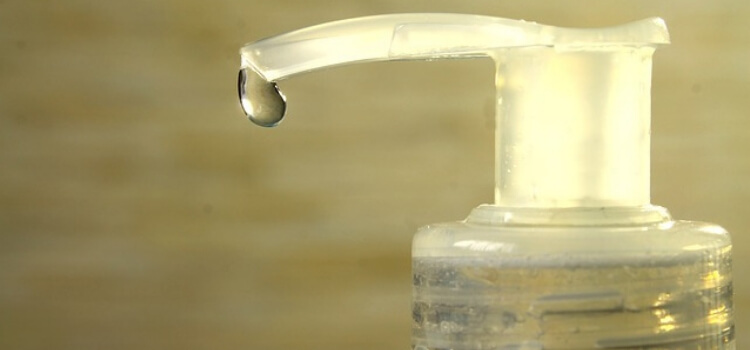
There is currently a debate about whether or not this type of alcohol in skin care is as bad as people claim. The argument is that simple alcohols may cause no problems at all depending on the amount present and the combination of other ingredients that are mixed in with it in the formula. Therefore, products that only contain small amounts shouldn’t be an issue.
I can personally understand the reasoning behind this argument as I have used very effective products in the past that have contained these particular types of alcohols. They did appear very low down on the ingredients label and even though my skin is on the dry side, I did not experience any irritation or dryness after using them. However, despite this, I still prefer to avoid these types of alcohol if at all possible or at the very least ensure that they’re way down the bottom of the ingredients label just to be on the safe side.
Fatty Alcohols
Fatty Alcohols are considered the good kind and are a better option for most people as they are derived from natural fats and oils like coconut or palm oil. These will be commonly listed under names such as Cetyl Alcohol, Stearyl Alcohol, Cetearyl Alcohol, Behenyl Alcohol or Myristyl Alcohol. These types are very different in that they are not drying or irritating to most skin types, in fact, they are actually moisturising and hydrating due to their fatty acid content.
Fatty Alcohols do have their drawbacks though as they can be pore clogging which can result in breakouts for some. So if you are using a supposedly gentle skin care product but find that you are having a problem with breakouts, this may be the cause. They may also be unsuitable for those with particularly sensitive skin as they can cause irritation and inflammation because of their possible pore clogging effect.
Aromatic Alcohol
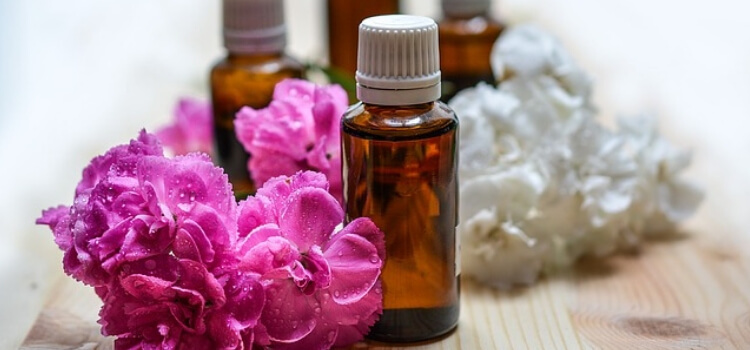
There is one other type of alcohol that is worth mentioning and that is Aromatic Alcohol. The most common one found in skin care products is Benzyl Alcohol but Benzyl Alcohol is very similar to simple alcohol and can cause the same drying and irritating effect when used in high concentrations and what’s most concerning is that this type of alcohol is commonly found in natural skin care products.
This could be down to the fact that this is actually a natural ingredient found in many fruits, plants, and essential oils but unfortunately, most skin care companies use a synthetic version that can cause the problematic irritation issues.
The Bottom Line
Because of the reasons for its usage in skin care products, alcohol may be slightly trickier to avoid than first thought. There are many alcohol-free alternatives out there but it’s worth noting that the term ‘alcohol-free’ only refers to simple alcohols and does not include fatty alcohols or aromatic alcohols like benzyl alcohol so these products will more than likely still contain these other kinds.
Although the use of fatty alcohols shouldn’t be a problem for most of us, this could be an issue for those with sensitive skin who can not tolerate even fatty alcohols but may be completely unaware that their alcohol-free products still contain them.
What are your thoughts and feelings about alcohol and its uses in skin care? Are you an avoider or are you happy to use it as long as it’s either the fatty type or if it’s right down the bottom of the ingredients list? Please let me know what you think in the comments below.



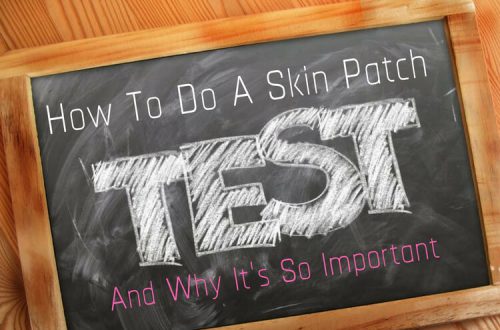
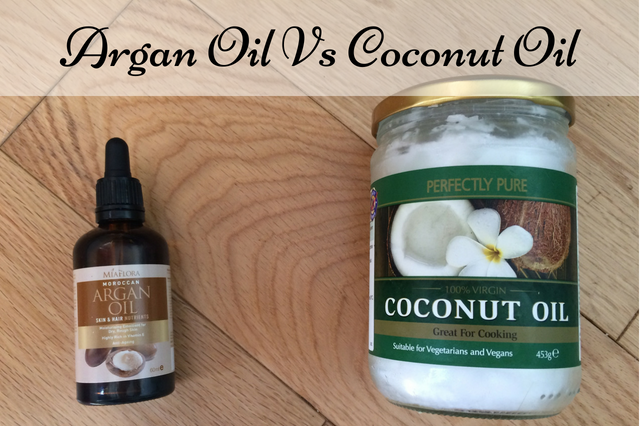

6 Comments
Scott Persons
Great article on good alcohol for skin. I always thought all alcohol was bad for your skin, so i avoided any product with alcohol. Living in AZ, I don’t need any help with drying out my skin. Thank you for informing me that there are good alcohols for skin, as i probably avoided a good skin care product because it had alcohol. Not knowing it was good alcohol. I will read labels with this in mind. Thank you again, really big help.
Jessie
Hi Scott
Up until recently, I felt exactly the same. Nothing is ever as straight forward as it seems when it comes to skin care products so I’m glad it gave you some clarity.
Peter
I’m quite surprised that companies are allowed to advertise a product as alcohol-free and still put alcohol in there, whatever the kind – it’s still alcohol. Not a very honest attitude to say the least. it seems the only way to avoid it is reading the labels.
Thanks for this useful post!
p.s Are there any REAL alcohol-free skin care products that you would recommend?
Jessie
Hi Peter
I know, I was pretty surprised by that myself. I thought most of my products were alcohol-free but it turned out that most of them still contained fatty alcohols. As to whether or not there are actually any real alcohol-free products out there, I can tell you this, out of all of my own products (and I have a lot) only one product was completely alcohol-free.
It stated 100% alcohol-free on the label and sure enough, there was no alcohol in the ingredients so I think if you’re trying to avoid alcohol in all forms then checking the labels is the only way.
ches
What an interesting article about the different kinds of alcohol in skin care products. My husband knows quite a bit about chemicals as he has to use them in preparation of samples nearly every day.
I asked him what he thought about alcohol on the skin and he reckons that most of them would not be good as they are derived from organic acids. He said out of all alcohols he would choose a glycerine fatty alcohol ie. trihydroxypropanol or propane-1,2,3,-triol. As a point of interest he said he often used benzoic acid for analysis work and it smells like vanilla. This is used to make benzyl alcohol. Very good read thanks. Ches
Jessie
Hi Ches
Yes, fatty alcohols seem to be the ones considered as the good kind to use in skin care. Benzyl is considered as an aromatic alcohol, I guess if it smell like vanilla, that would explain why. Thanks for sharing.